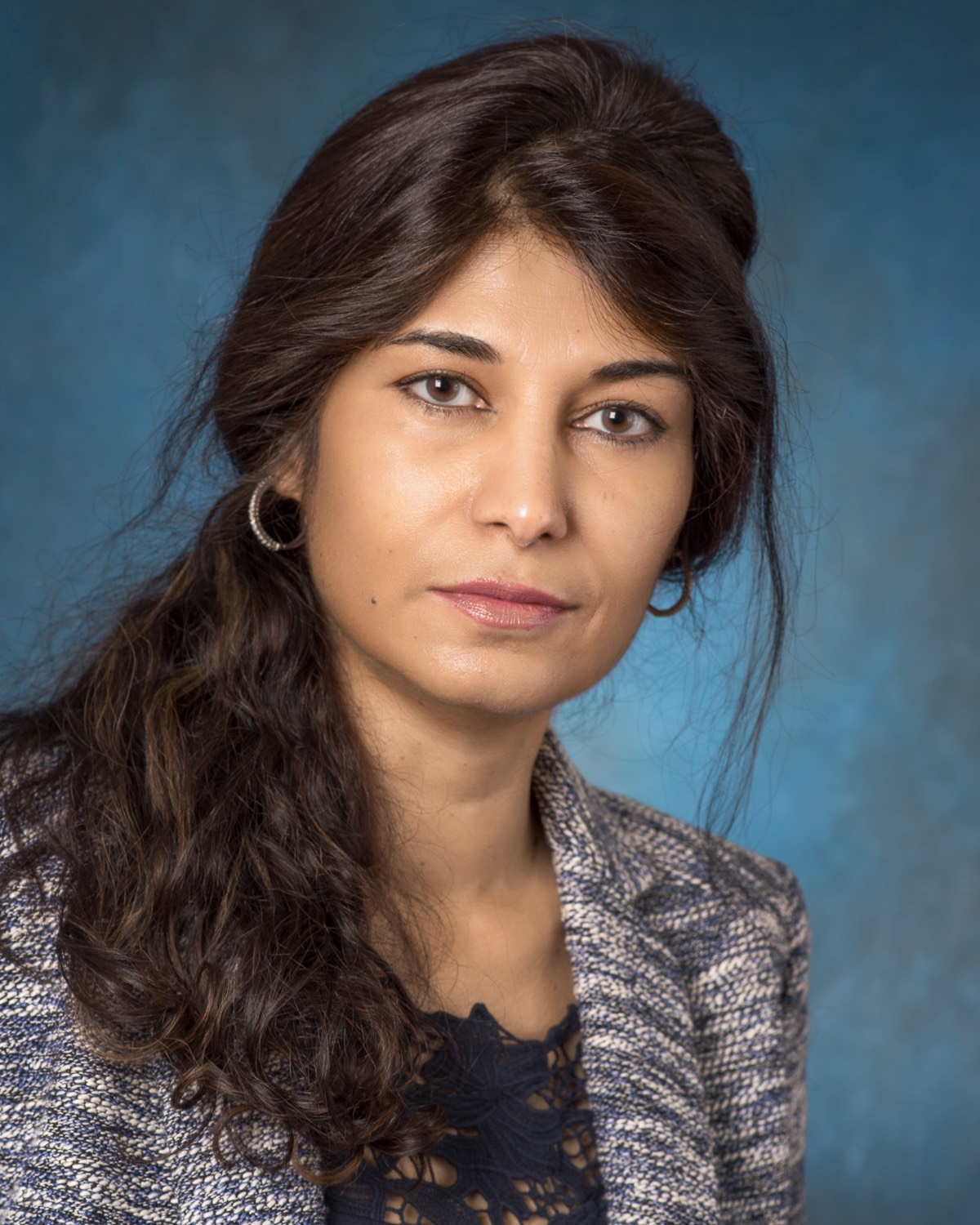5G Technology Workshop during Mobile World Congress in Barcelona
![]() 5G Technology Workshop during Mobile World Congress in Barcelona
5G Technology Workshop during Mobile World Congress in Barcelona
Conference: Mobile World Congress
Organized by: IEEE Future Network Initiative
Date & Time: 28th February 2019 - 09:00-18:00 CET
Location: Universidad Politècnica de Catalunya - Campus Nord
Carrer de Jordi Girona, 1, 3,
08034 Barcelona, Spain
Click Here for Directions
Overview
IEEE, the world’s largest professional organization advancing technology for humanity is hosting Future Technology Workshop focusing on technologies pertaining to 5G era and beyond in the backdrop of Mobile World Congress on Thursday, February 28, 2019 at University of Politecnica De Catalunya, Barcelona.
This workshop is sponsored by IEEE Future Networks Initiative, and is aimed at bringing together researchers, scientists, technology experts, and stakeholders from the Industry, Governments and Academia to discuss Future Network technologies pertaining to 5G era systems, the opportunities and challenges that these pose for a broad spectrum of verticals e.g., smart cities, tactical and first responder missions, eHealth, connected cars, and infrastructure and ecosystem preparedness. This workshop is expected to serve as a catalyst to:
- investigate and identify requirements for mass scale deployment of 5G era systems and drive open industry ecosystems and standards addressing such requirements;
- discuss future trends to identify new research areas for technologies to be developed or enhanced to support future extensions targeting next ten year timeframe.
The workshop will have the expert talks and panel on the topics related to MIMO, applications and verticals, Edge Automation, Security, Cognitive Radio, Fronthaul, Future Network Testbeds and Deployment considerations and much more. An Overview of the IEEE Futures Initiative will also be presented.
Contact Ashutosh Dutta (This email address is being protected from spambots. You need JavaScript enabled to view it.) for further information.
Patron:
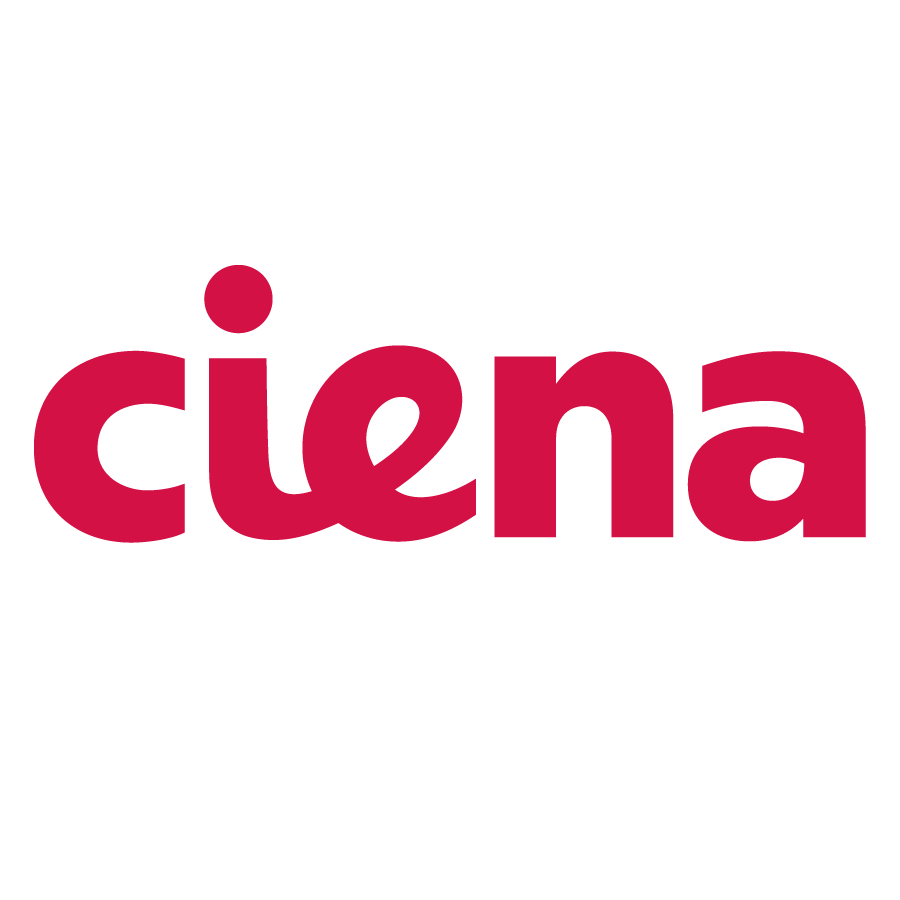
Agenda:
| Time | Speaker | Affiliation | Talk Title | |
| 8:30 - 9:00 | Registration/Breakfast | |||
| 9:00 - 9:10 | Welcome Remarks Presented By: Dr. Ashutosh Dutta and Kaniz Mahdi | |||
| 9:10 - 9:30 | Dr. Mehdi Bennis | University of Oulu | Wireless Network Intelligence @ the Edge | |
| 9:30 - 10:00 |
Dr. Sachin Katti |
Stanford University | A Peak into the Future of Control | |
| 10:00 - 10:30 | Rajesh Gadiyar | Intel | Network Transformation: Are We Ready for 5G and Edge Clouds? | |
| 10:30 - 10:45 | Coffee Break | |||
| 10:45 - 11:15 | Vish Nandlall | VP, Emerging Technologies, Dell/EMC | Keynote 1: Confluence of Connect Compute and Store with Sense & Act | |
| 11:15 - 11:45 | Dr. Frank H. P. Fitzek | Professor, TU Dresden | 5G Communication for Tactile Internet with Humans-in-the-Loop | |
| 11:45 - 12:15 | Dr. Raul Muñoz | CTTC, Barcelona | An Experimental View on 5G Research Projects for Edge Cloud: From the Lab to the Field | |
| 12:15 - 12:45 | Dr. Pere Gilabert | UPC | Dimensionality Reduction Techniques for Digital Predistortion Linearization of NR-5G Amplification Archchitectures | |
| 12:45 - 13:45 | Lunch | |||
| 13:45 - 14:30 | Jason Hoffman | CEO of MobilEdgeX | Keynote 2: Nth State Ambition for the Edge – Progress & Lessons Learned in 2018 | |
| 14:30 - 15:00 | Chih-Lin I | China Mobile | Future Network with Embedded AI | |
| 15:00 - 15:30 |
Dr. Eduard Grasa Gras |
i2CAT | Streamlining Distributed Mobility Management and Security for 5G and beyond with RINA | |
| 15:30 - 15:45 | Coffee Break | |||
| 15:45 - 16:15 | Dr. Shuaib Siddiqui | i2CAT Foundation | 5GBarcelona and 5GCity: City-Wide 5G Field and Lab Trials | |
| 16:15 - 16:45 | Benoit Pelletier | 5G ENCQOR |
International Collaboration on 5G Real World Operational Testbed |
|
| 16:45 - 17:15 | Introduction of IEEE Future Networks Initiative Presented By: Dr. Ashutosh Dutta and Kaniz Mahdi |
|||
| 17:15 - 17:45 | Dr. John Chapin | Barone Consulting | Technology for 5G from the DARPA Spectrum Collaboration Challenge: Autonomous Spectrum Sharing and a Large-scale Testbed | |
| 17:45 - 18:00 | Concluding Remarks Presented By: Dr. Luis Velasco |
|||
Speakers
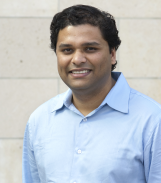
Dr. Sachin Katti is an Associate Professor of Electrical Engineering and Computer Science at Stanford University and also the Director of the xRAN Foundation. He is also Co-Founder and ex-CEO of Kumu Networks which is commercializing his research on full duplex radios. He received his PhD in EECS from MIT in 2009. His research focuses on designing and building next generation high capacity wireless networks by combining techniques from information and coding theory, RF systems, and networking. His research has won numerous awards, including the 2008 ACM Doctoral Dissertation Award - Honorable Mention, the George Sprowls Award for Best Doctoral Dissertation in EECS at MIT, the IEEE William Bennett Prize, the Best Student Paper Award at ACM SIGCOMM 2012, USENIX ATC 2013, the Sloan Fellowship, the NSF Career Award as well as Okawa, Hooover, Packard and Terman Faculty Fellowships.
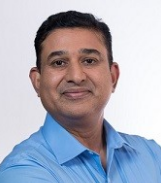
Rajesh Gadiyar is the Chief Technology Officer (CTO) for the Network Platforms Group and leads the Architecture & Systems Engineering organization. He is focused on delivering a scalable and efficient architecture for next generation communications platforms. He leads the architecture efforts to accelerate Network Function Virtualization (NFV) including 5G infrastructure, Edge Cloud, and AI in Networking.
Since joining Intel in 2000, he has held several positions in Engineering, Professional Services, Strategic Planning and Architecture. Prior to joining Intel, he led various engineering teams at Trillium Digital Systems and Wipro Ltd. He brings several years of experience in networking products, architecture, protocols, standards and software development for Voice over IP, cellular, broadband, mobile telephony and data networks. He represents Intel in standard committees such as ATIS TOPS council and TIA and is a TSC member of the Open Network Automation Platform (ONAP) initiative under Linux Foundation. He is a regular speaker at industry events and forums. Rajesh has a B.S. in Electronics and Telecommunications engineering from National Institute of Technology, Trichy, India and an MBA from UCLA Anderson School of Management.
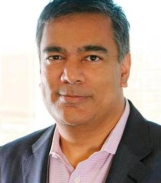
Vish Nandlall is the Head of Emerging Technologies and Ecosystems at Dell-EMC. He served as CTO for Ericsson North America, where he designed their regional market strategy and technology roadmap. Foremost among Vish’s accomplishments during his tenure with Ericsson, he led the resolution of AT&T 3G performance issues plaguing the firm. He also organised a market-by-market analytics initiative, identified signaling and network design flaws, and rolled out features efficiently in under a year to move all markets to target levels of retain ability.
Vish Nandlall also developed and executed a plan to deliver five emerging business organizations, including Cloud, SDN, OSS/BSS, Video, and Mobile Enterprise. These businesses realized an annualized $2 billion in new revenue at a time when the North American market revenue was $9 billion total. This success hinged on Vish’s ability to develop a portfolio through R&D prioritization, an effective M&A plan, and management of the service and sales support recruiting and training.
Vish Nandlall began his career at Nortel Networks, where he started in 1995 by leading the design of the world’s first distributed call processing platform. Over the course of the next ten years, he went on to pioneer 10Gbps IP forwarding, act as a key contributor and author of the Verizon A-IMS specification, and even lead the industry’s first LTE trial system. In 2005, Vish was named Nortel’s CTO for the Carrier Network Group as well as a Nortel Distinguished Engineer for his technical leadership across the firm’s IP, optical, and wireless products.
Vish holds a Bachelor of Science in Engineering, First Division, with a focus in Electrical Engineering, from the University of New Brunswick. He has been published several times, holds multiple patents, and has been listed by Wireless World as one of their Global 100 Wireless Experts. In 2016, he was inducted to the “Knowledge Nation 100” for his contributions to the country’s innovation agenda. Global Telecom Business listed him as one of their “50 CTOs to Watch.”
He speaks regularly at conferences, and has recently presented on topics including, “Building an IoT Strategy” at MWC 2016 and “Software Defined Transportation” at the 2016 NSW Transport Summit. Highly active within his community, Vish Nandlall has served as a director and policy chair for TIA. He also sits on the ATIS board, the FCC technology advisory committee, the Cloud Foundry board, and the EMC (now Dell Technologies) technology advisory board.
Vish shares his point of view and insights on topics like IoT and Big Data on http://vishnandlall.org/
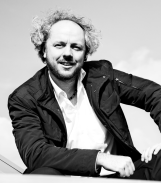
Dr. Frank H. P. Fitzek is a Professor and head of the “Deutsche Telekom Chair of Communication Networks” at TU Dresden coordinating the 5G Lab Germany. He is the spokesman of the DFG Cluster of Excellence CeTI.
He received his diploma (Dipl.-Ing.) degree in electrical engineering from the University of Technology – Rheinisch-Westfälische Technische Hochschule (RWTH) – Aachen, Germany, in 1997 and his Ph.D. (Dr.-Ing.) in Electrical Engineering from the Technical University Berlin, Germany in 2002 and became Adjunct Professor at the University of Ferrara, Italy in the same year. In 2003 he joined Aalborg University as Associate Professor and later became Professor.
He co-founded several start-up companies starting with acticom GmbH in Berlin in 1999. He has visited various research institutes including Massachusetts Institute of Technology (MIT), VTT, and Arizona State University. In 2005 he won the YRP award for the work on MIMO MDC and received the Young Elite Researcher Award of Denmark. He was selected to receive the NOKIA Champion Award several times in a row from 2007 to 2011. In 2008 he was awarded the Nokia Achievement Award for his work on cooperative networks. In 2011 he received the SAPERE AUDE research grant from the Danish government and in 2012 he received the Vodafone Innovation prize. In 2015 he was awarded the honorary degree “Doctor Honoris Causa” from Budapest University of Technology and Economy (BUTE).
His current research interests are in the areas of wireless and 5G communication networks, network coding, cloud computing, compressed sensing, cross layer as well as energy efficient protocol design and cooperative networking.
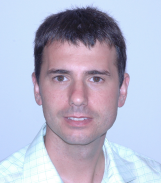
Dr. Raul Muñoz is graduated in Telecommunications Engineering in 2001 and received a Ph.D. degree in Telecommunications in 2005, both from the Universitat Politècnica de Catalunya (UPC), Spain. Currently, he is Senior Researcher, Head of the Optical Networks and Systems Department, and Manager of the Communication Networks division. Since 2000, he has participated and/or coordinated the institution activities in over 35 R&D projects funded by the EC’s Framework Programmes (H2020, FP7, FP6 and FP5) and the Spanish National Research programmes, as well as industrial contracts. He has been Project Coordinator of 5 Spanish research projects, the coordinated EU-Japan FP7-ICT STRAUSS project (608528), and the H2020-MSCA-ITN ONFIRE project (765275). He has participated in the organization of several conferences (ONDM 2020 General chair, ONDM2019 TPC chair, WWRF39 General chair, ECOC 2015 TPC chair, EUCNC 2014 Track chair, NOC 2012 TPC chair) and has been elected as academic member of the Board of the 5G Infrastructure Association (2017-2018), and the Steering Board of the Wireless World Research Forum – WWRF (2016-2017) and the Networld2020 ETP (2017-2018). His research interests include control and service management architectures. He has published over 70 journal papers, 240 international conference papers, and 2 patents. He is IEEE Senior Member since 2012.
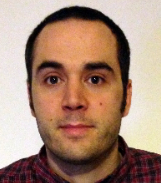
Dr. Pere L. Gilabert received the M.Sc. degree in telecommunication engineering from the Universitat Politècnica de Catalunya (UPC – Barcelona Tech.), Spain, in 2002. His master’s thesis was with the University of Rome La Sapienza, Italy, under an Erasmus Exchange Grant. He joined the Department of Signal Theory and Communications (TSC) in 2003 and received his Ph.D. degree, awarded with the Extraordinary Doctoral Prize, from the UPC in 2008. He is an Associate Professor at the Castelldefels School of Telecommunications and Aerospace Engineering (EETAC- UPC). His research activity is in the field of linearization techniques and digital signal processing solutions for highly efficient transmitter architectures.
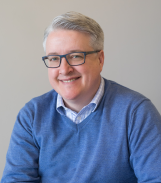
Jason Hoffman is the Chairman and CEO of MobiledgeX, a company focusing on edge computing and founded by Deutsche Telekom. Previously he was a CTO at Ericsson AB and was P&L responsible for their cloud and datacenter infrastructure business. While at Ericsson his group created the world’s first hyperscale, disaggregated system and led the market in the modernization of telecom infrastructure.
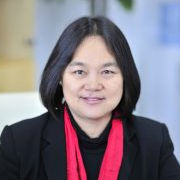
Chih-Lin I received her Ph.D. degree in electrical engineering from Stanford University. She has been working at multiple world-class companies and research institutes leading the R&D, including AT&T Bell Labs; Director of AT&T HQ, Director of ITRI Taiwan, and VPGD of ASTRI Hong Kong. She received the IEEE Trans. COM Stephen Rice Best Paper Award, the IEEE ComMag Fred W. Ellersick Prize Best Paper Award, is a winner of the CCCP National 1000 Talent Program, and has won the 2015 Industrial Innovation Award of IEEE Communication Society for Leadership and Innovation in Next-Generation Cellular Wireless Networks.
In 2011, she joined China Mobile as its Chief Scientist of wireless technologies, established the Green Communications Research Center, and launched the 5G Key Technologies R&D. She is spearheading major initiatives including 5G, C-RAN, high energy efficiency system architectures, technologies and devices, green energy, and wireless big data for network embedded intelligence. She has led the launch of Wireless AI Alliance (WAIA) and O-RAN (Open RAN) Alliance.
She was an Area Editor of IEEE/ACM Trans. NET, an elected Board Member of IEEE ComSoc, Chair of the ComSoc Meetings and Conferences Board, and Founding Chair of the IEEE WCNC Steering Committee. She was a Professor at NCTU, a hih-Lin I received her Ph.D. degree in electrical engineering from Stanford University. She has been working at multiple world-class companies and research institutes leading the R&D, including AT&T Bell Labs; Director of AT&T HQ, Director of ITRI Taiwan, and VPGD of ASTRI Hong Kong. She received the IEEE Trans. COM Stephen Rice Best Paper Award, the IEEE ComMag Fred W. Ellersick Prize Best Paper Award, is a winner of the CCCP National 1000 Talent Program, and has won the 2015 Industrial Innovation Award of IEEE Communication Society for Leadership and Innovation in Next-Generation Cellular Wireless Networks.
In 2011, she joined China Mobile as its Chief Scientist of wireless technologies, established the Green Communications Research Center, and launched the 5G Key Technologies R&D. She is spearheading major initiatives including 5G, C-RAN, high energy efficiency system architectures, technologies and devices, green energy, and wireless big data for network embedded intelligence. She has led the launch of Wireless AI Alliance (WAIA) and O-RAN (Open RAN) Alliance.
She was an Area Editor of IEEE/ACM Trans. NET, an elected Board Member of IEEE ComSoc, Chair of the ComSoc Meetings and Conferences Board, and Founding Chair of the IEEE WCNC Steering Committee. She was a Professor at NCTU, an Adjunct Professor at NTU, and an Adjunct Professor at BUPT. She is the Chair of FuTURE 5G SIG, the Chair of WAIA Executive Committee, the Chair of O-RAN TSC, an Executive Board Member of GreenTouch, a Network Operator Council Founding Member of ETSI NFV, a Steering Board Member and Vice Chair of WWRF, a Steering Committee member and the Publication Chair of IEEE 5G Initiative, a member of IEEE ComSoc SDB, SPC, and n Adjunct Professor at NTU, and an Adjunct Professor at BUPT. She is the Chair of FuTURE 5G SIG, the Chair of WAIA Executive Committee, the Chair of O-RAN TSC, an Executive Board Member of GreenTouch, a Network Operator Council Founding Member of ETSI NFV, a Steering Board Member and Vice Chair of WWRF, a Steering Committee member and the Publication Chair of IEEE 5G Initiative, a member of IEEE ComSoc SDB, SPC, and CSCN-SC, and a Scientific Advisory Board Member of Singapore NRF. Her current research interests center around “From Green & Soft to Open & Smart”.
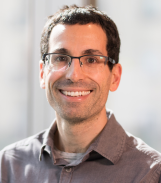
Dr. Eduard Grasa graduated in Telecommunication Engineering at the Technical University of Catalonia (UPC, July 2004) and got his Ph.D. (UPC, February 2009). In 2003 he joined the Optical Communications Group (GCO), where he did his thesis on software architectures for the management of virtual networks in collaboration with i2CAT, which he joined in 2008. He has participated in several national and international research projects, dealing with network virtualization, management and orchestration. His current interests are focused on the Recursive Internetwork Architecture (RINA), a fundamental new internetwork architecture that radically simplifies networking. He has been the technical lead of the FP7 IRATI project, where a RINA Prototype for Linux over Ethernet was developed; and the technical lead of the FP7 PRISTINE project, investigating the programmability and distributed management aspects of RINA. Right now is acting as the technical lead of the H2020 ARCFIRE project, working on large-scale RINA experimentation using the FIRE+ testbeds.
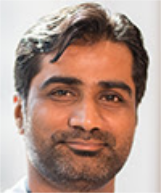
Dr. Shuaib Siddiqui has 10+ years experience working in the academic, research and industry of ICT sector. At present, he is a senior reseacher at i2CAT Foundation where he is also the Area Manager for Software Networks research lab. Since he joined i2CAT Foundation in 2015, he has been active in 5G related projects (under H2020) on the topics of control, management, & orchestration platforms based on SDN/NFV, network slicing, and NFV/SDN security. Currently, he is working on the H2020 5GCity (5G PPP Phase 2) project, as Deputy Project Coordinator, which aims to design, develop and deploy a neutral host platform for 5G infrastructures in three cities (Barcelona, Bristol and Lucca).
Shuaib Siddiqui holds a Ph.D. in Computer Science from Technical University of Catalonia (UPC) (Spain), M.Sc. in Communication Systems (2007) from École Polytechnique Fédérale de Lausanne (EPFL), Switzerland, and B.Sc. in Computer Engineering (2004) from King Fahd University of Petroleum & Minerals (KFUPM), Saudi Arabia. One of his publications, based on his PhD thesis, received the IEEE Internet Technical Committee (ITC) paper of the year award for 2015.
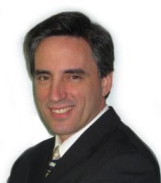
Benoit Pelletier is the Co-founder of the 5G ENCQOR project and executive member of Innovation ENCQOR; a NPO created to deliver this collaborative innovation project across Quebec-Ontario corridor, Benoit Pelletier is currently director, Business Development and ENCQOR’s Program Lead within Ciena. He is involved in developing new business opportunities, partnerships and/or alliances as well as fostering innovation through collaborative ecosystems and synergy with Universities and Small & Medium Enterprises.
Passionate about creativity, “Innovate or Evaporate” has been its mantra over the last 30 years in different industry markets: Telecom at Ciena and Nortel, Transport at Bombardier and Aerospace at Oerlikon Aerospace. Benoit held a number of positions within design, system integration, program management and business development. Broad knowledge in Product Development, Cost Management and expertise in New Product Introduction of cutting-edge technologies and government relationships. Benoit holds a Bachelor of Electrical Engineering degree from Sherbrooke University.
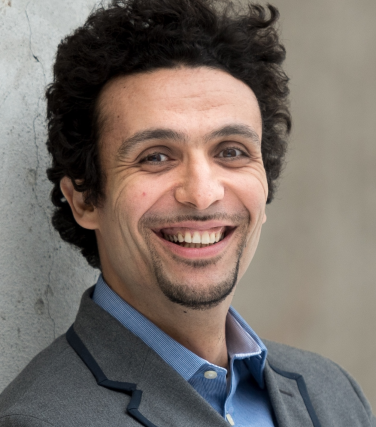
Mehdi Bennis (S’07, AM’08, SM’15) received his M.Sc. degree in electrical engineering jointly from EPFL, Switzerland, and the Eurecom Institute, France in 2002, and his Ph.D. from the University of Oulu in December 2009. He is currently an associate professor at the University of Oulu, an Academy of Finland research fellow and head of the intelligent connectivity and networks group (ICON). His main research interests are in resource management, game theory, and machine learning in 5G networks and beyond. He has co-authored one book and published more than 200 research papers in international conferences, journals, and book chapters. He was the recipient of the 2015 Fred W. Ellersick Prize from the IEEE Communications Society, the 2016 Best Tutorial Prize from the IEEE Communications Society, the 2017 EURASIP Best Paper Award for the Journal of Wireless Communications and Networks, and the 2017 all-University of Oulu research award.
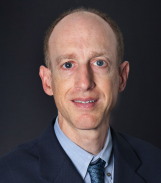
Dr. John Chapin is Senior Consultant at Barone Consulting. He has over 20 years of experience in technical leadership roles in communications and networking, computer systems, and exploitation of the radio spectrum. He most recently served as Program Manager in the Defense Advanced Research Projects Agency (DARPA), where he initiated and led programs in spectrum access and spectrum sharing technology. Previous roles include faculty member in the Electrical Engineering and Computer Science department of MIT; Chief Technical Officer at Vanu, Inc., a provider of software-designed radio (SDR) based cellular radio access networks; and Chairman of the Software Defined Radio Forum. In recognition of his work at DARPA, Dr. Chapin was awarded the Office of the Secretary of Defense Medal for Exceptional Public Service, and the Wireless Innovation Forum International Achievement Award. In recognition of his earlier technical work, Dr. Chapin received multiple Best Paper awards and the Presidential Early Career Award for Scientists and Engineers (PECASE), the United States' highest honor for scientists and engineers under age 35. Dr. Chapin holds two patents and earned a Ph.D. in Computer Science from Stanford University.
Organizing Committee
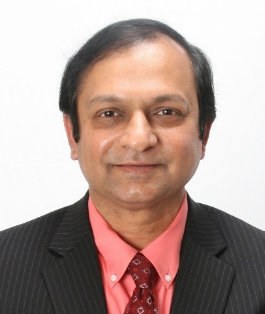
Dr. Ashutosh Dutta is currently Senior Wireless Communication Research Scientist at Johns Hopkins University Applied Physics Labs (JHU/APL). Most recently he served as Principal Member of Technical Staff at AT&T Labs in Middletown, New Jersey. His career, spanning more than 30 years, includes Director of Technology Security and Lead Member of Technical Staff at AT&T, CTO of Wireless at a Cybersecurity company NIKSUN, Inc., Senior Scientist in Telcordia Research, Director of Central Research Facility at Columbia University, adjunct faculty at NJIT, and Computer Engineer with TATA Motors. He has more than 90 conference and journal publications, three book chapters, and 30 issued patents. Ashutosh is co-author of the book, titled, “Mobility Protocols and Handover Optimization: Design,Evaluation and Application,” published by IEEE and John & Wiley that has recently been translated into Chinese Language. Ashutosh served as the chair for IEEE Princeton / Central Jersey Section, Industry Relation Chair for Region 1 and MGA, Pre-University Coordinator for IEEE MGA and vice chair of Education Society Chapter of PCJS. He co-founded the IEEE STEM conference (ISEC) and helped to implement EPICS (Engineering Projects in Community Service) projects in several high schools. Ashutosh currently serves as the Director of Industry Outreach for IEEE Communications Society and is the founding co-chair for IEEE 5G initiative. He also serves as IEEE Communications Society’s Distinguished Lecturer for 2017-2018. He was recipient of the prestigious 2009 IEEE MGA Leadership award and 2010 IEEE-USA professional leadership award. Ashutosh obtained his BS in Electrical Engineering from NIT Rourkela, India, MS in Computer Science from NJIT, and Ph.D. in Electrical Engineering from Columbia University under the supervision of Prof. Henning Schulzrinne. Ashutosh is a senior member of IEEE and ACM.
Kaniz Mahdi Kaniz Mahdi is Vice President of Advanced Architectures at Ciena. In this role, Kaniz is responsible for Ciena’s technology vision, architecture, discovery and verification with industry and academia to drive new growth opportunities for Ciena. Her current area of focus is self-learning systems and Applied Intelligence.
Kaniz spent the last few years as VP/Head of Architecture at Ericson shaping technology landscape for the multi-faceted transformation of telecommunication industry with Cloud, SDN, and 5G. Prior to joining Ericsson, she headed Communications Services Standards Research at Huawei Technologies, and held various roles in Systems Architecture and Product Design at Nortel Networks. Kaniz has a stellar record of continuously pushing the envelope on new technologies with 45 patent grants and over 90 publications on Multimedia Broadband and Software Defined Systems. She holds a Bachelor of Engineering in Electrical Engineering and a Master of Science in Telecommunications.
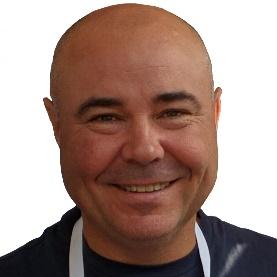
Dr. Luis Velasco received the M.Sc. degree in Physics from Universidad Complutense de Madrid (UCM) in 1993 and the PhD degree from Universitat Politecnica de Catalunya (UPC) in 2009. In 1989 he joined Telefonica of Spain and was involved on the specifications and first office application of Telefonica's SDH transport network. In 2004 he joined UPC, where currently he is a full professor at the Department of Computers Architecture (DAC). He has co-authored more than 200 papers in peer-reviewed International Journals and Conferences, as well as two books related to Elastic Optical Networks. He is serving as an Associate Editor of the IEEE/OSA Journal of Optical Communications and Networking (JOCN) and in the TPC of several international conferences as well as reviewer of international journals. He has participated in various European research projects. He received the ICREA Academia award in engineering sciences in 2015. His interests include monitoring and data analytics aspects for the service and network layers.
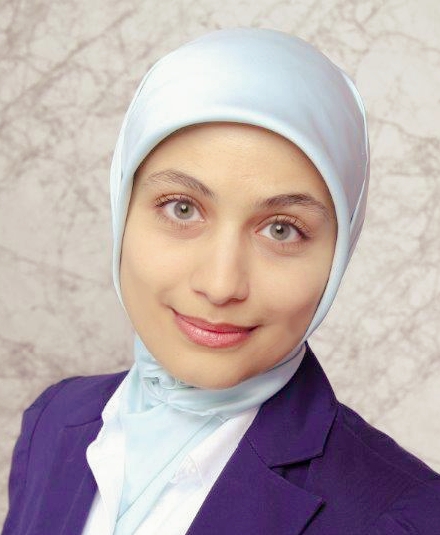
Dr. Meryem Simsek is a Senior Research Scientist at the International Computer Science Institute and a visiting scientist at UC Berkeley since October 2016. Since 2014, Dr. Simsek is also a research group leader at Technical University Dresden, Germany. She earned her Dipl.-Ing. degree in Electrical Engineering and Information Technology and her Ph.D. on “Learning-Based Techniques for Intercell-Interference Coordination in LTE Advanced Heterogeneous Networks” from the University of Duisburg-Essen, Germany in 2008 and 2013, respectively. Her current research focuses on end-to-end modelling and optimization of emerging wireless systems, heterogeneous wireless networks, achieving high reliability and low latency in 5G networks, and machine learning-based resource management. Further research interests are based on developing novel tools for wireless network management, wireless edge automation, and autonomous wireless networks. She is the recipient of the fellowships by the German Physical Society (2004-2005) and the German National Academic Foundation, which is only granted to the outstanding 0.5% students in Germany (2004-2008).
She holds the titles of the first electrical engineering student who has graduated before the regular duration of study and the best Diplom-graduate in Electrical Engineering at the University of Duisburg-Essen (2008). Dr. Simsek has authored more than 60 publications and has received the IEEE Communications Society Fred W. Ellersick Prize 2015 for her IEEE Communications Magazine paper “When Cellular Meets WiFi in Wireless Small Cell Networks”. In addition, she has initiated and is chairing the IEEE Tactile Internet Technical Committee and is serving as the secretary of the IEEE P1918.1 standardization working group, which she has co-initiated.
She is also holding the honorary positions of the “industry and student activities coordinator” in the IEEE Women in Communications Engineering (WICE) committee and vice-chair of the IEEE ComSoc Mobile Communication Networks Standards Committee (MobiNets SC).


